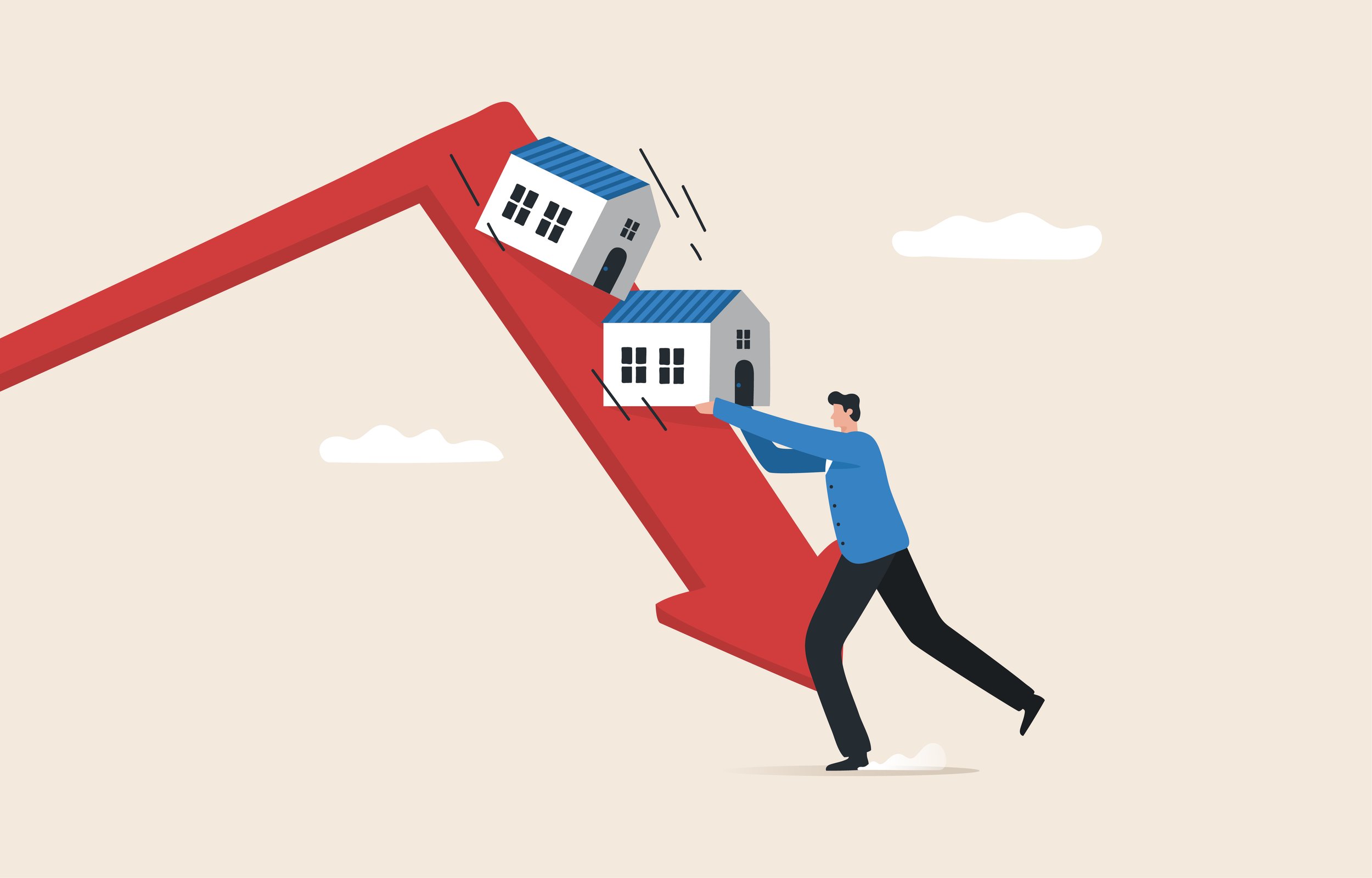Is There a Housing Market Crash Coming?
After a long period of low mortgage rates and rising home prices, the U.S. housing market is cooling down. Home sales have declined for 12 straight months through January 2023, and home prices seem to have peaked. These factors are making some people nervous, wondering if we're about to see another housing market crash.
We'll discuss possible signs of trouble, answer the big question, and offer some tips for those new to the country on buying a home in the U.S.
Signs of housing market trouble
Rising interest rates: The Federal Reserve continues to raise interest rates, making mortgage rates more expensive for potential home buyers. This can result in sellers being forced to lower prices.
Risky mortgages: When fewer people are buying homes, lenders may relax their credit requirements for mortgage approval meaning buyers who may not, in reality, be able to afford to buy a home are approved for a mortgage. This was a significant factor in the 2008 crash.
Hesitant buyers: When people fear a housing market crash, they are more cautious and less likely to make a move even if the signs they see aren't there. This can contribute to a crash that otherwise may not have happened.
Will the housing market crash?
Is the housing market cooling from a long hot streak? Yes. But there are several good indicators that a housing market crash is not imminent.
Inventory: The housing inventory is low; there is a 2.9-month supply of homes for sale in January 2023. This lack of inventory means buyers are bidding up home prices.
Builders aren't keeping pace with demand: Homebuilders who were burned by 2008 have never ramped back up to pre-2008 levels. They can't buy land and clear regulatory approvals fast enough to keep up with demand.
New buyers: There is a lot of demand from a few different demographics. Now that we have an entrenched work-from-home culture, thanks to the pandemic, current homeowners want more space and are buying larger homes. Millennials are at the age when people start buying homes, and Hispanics are a growing demographic of homebuyers.
Stricter lending standards: Thanks to the 2008 crash, when banks handed out mortgages like Halloween candy to very underqualified applicants, there are more stringent lending standards today. The typical credit score for homebuyers at the end of 2022 was 766 (Very Good).
Buying a home in the U.S.
Non-citizens can legally buy a home in the U.S.; there is no citizenship requirement for homebuyers. Non-citizens may also apply for and be approved for a mortgage if they meet the lender's requirements. But owning a home or other property in the U.S. does not give residency or change a person's legal status.
The typical home price in the U.S. is $287,148, so most buyers will require a mortgage. And one of the requirements for mortgage approval is a healthy credit score. And the better your score, the lower the interest rate you'll be offered. This is important. The interest rate is the cost of borrowing money for a home or any other purchase, so the lower the rate, the more money you'll save.
Those new to the U.S. will usually not have a credit score as scores from other countries do not follow you to the U.S., so you're starting from scratch. That's where Upwardli can help!
We created our own credit builder plan. You’ll get instant pre-approval with no credit check and no deposit. Each account includes a line of credit designed to help you build credit quickly. We report your progress to the credit bureaus. Upwardli has also created dozens of helpful resources to help you learn the ins and outs of the U.S. financial system.


